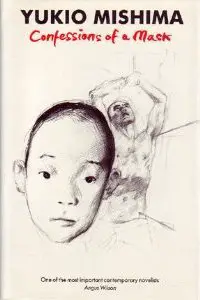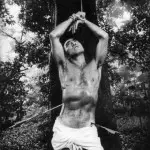 There are so many books out there that it’s impossible to read all the good ones in just one lifetime. This also raises another problem: that of rereading favourite books. I rarely reread books, but there are a few authors, mainly Japanese, whose books compel me to return to their fiction every once in a while. Two of these authors are Eiji Yoshikawa with his seminal work Musashi and Yukio Mishima’s novels.
There are so many books out there that it’s impossible to read all the good ones in just one lifetime. This also raises another problem: that of rereading favourite books. I rarely reread books, but there are a few authors, mainly Japanese, whose books compel me to return to their fiction every once in a while. Two of these authors are Eiji Yoshikawa with his seminal work Musashi and Yukio Mishima’s novels.
Recently, I have reread Mishima’s first novel, Confessions of a Mask (or Kamen no Kokuhaku in Japanese), one of my favourite books written by this author. Published in 1948, it marked Mishima’s entry on the Japanese literary scene and, although the book was somewhat controversial, it was highly praised by both local and foreign critics.
Confessions of a Mask deals with Kochan’s life over a period of about twenty years, starting with his childhood under the strict supervision of his grandmother, his school life plagued by his frail body, the war years as a student and factory worker, and the subsequent post-war years when he finally comes to terms with his obsessions. It is by no means the life of a regular Japanese boy, but of one who can only find pleasure in thoughts of death and violence. The symbolic mask Kochan soon decides he has to wear has to do with his desire for “normality,” at a time when all his thoughts and feelings pointed towards homosexuality and sadomasochism.
Kochan’s inability to feel any kind of sexual emotion towards women and his regular fantasies involving robust men signalize to him that he is so much different than his fellow classmates. An unsuccessful trip to a brothel where he is impotent in the presence of a prostitute and his difficulty in feeling anything for Sonoko, his friend’s sister, whom he tried to have a relationship with, make him realize that he will never be able to live a normal life, as everyone else around him seemed to enjoy.
In Pink Samurai, a book about the pursuit and politics of sex in Japan, Nicholas Bornoff writes that, “With Confessions of a Mask, Mishima gave a poignant account of a young man who grows up to become aware of his homosexuality and who resigns himself to life in the closet.”
Confessions of a Mask is a work of fiction that many critics have identified as having numerous autobiographical instances. This becomes clear if we look at the life Yukio Mishima led, his subsequent obsession with body building, his homosexuality, his militarism, and his suicide by seppuku. But, to me, the most shocking confession in the book is Kochan’s immense sexual feelings triggered by a reproduction of Guido Reni’s painting depicting St. Sebastian’s martyrdom. This image followed Mishima up to his adulthood when he posed in photographs as St. Sebastian shot dead with arrows, just like in Reni’s painting.
 Also, Reni’s “St. Sebastian” causes Kochan to experience his first ejaculation: “That day, the instant I looked upon the picture, my entire being trembled with some pang joy. My blood soared up; my loins swelled as though in wrath. The monstrous part of me that was on the point of bursting awaited my use of it with unprecedented ardor, upbraiding me for my ignorance, panting indignantly. My hands, completely unconsciously, began a motion they had never been taught. I felt a secret, radiant something rise swift-footed to the attack from inside me. Suddenly it burst forth, bringing with it a blinding intoxication…” (p.40, Tuttle, 1986).
Also, Reni’s “St. Sebastian” causes Kochan to experience his first ejaculation: “That day, the instant I looked upon the picture, my entire being trembled with some pang joy. My blood soared up; my loins swelled as though in wrath. The monstrous part of me that was on the point of bursting awaited my use of it with unprecedented ardor, upbraiding me for my ignorance, panting indignantly. My hands, completely unconsciously, began a motion they had never been taught. I felt a secret, radiant something rise swift-footed to the attack from inside me. Suddenly it burst forth, bringing with it a blinding intoxication…” (p.40, Tuttle, 1986).
Yukio Mishima eventually built for himself a perfect body and, in 1970, just like Kochan’s obsessions in Confessions of a Mask, he sliced his belly open with a samurai sword and died a spectacular gory death.
Photo source 1 & 2



On Mishima, I would recommend to you the viewing of the movie I believe titled “Mishima” with an incredible, very believable performance by a Japanese actor named Ken Okata, Ogata ?? and a haunting musical score by Philip Glass. The movie is a composite if Yukio Mishima’s tetrology – “the Sea of Fertility” ie. “The temple of the Golden Pavilion”, “Runaway horses”, etc.. I believe the director was Martin Scorcese but not sure. If you are a reader of Mishima you must see this movie!!
@John: Thanks for the tip. I’ll look for it.